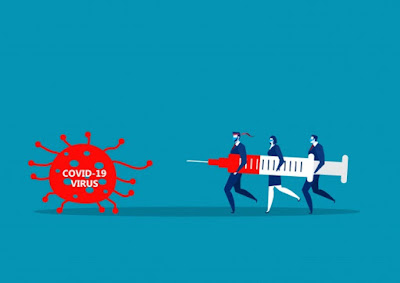5 Magical Ways For Working Less & Accomplishing More
Working less and still establishing more. It sounds like a fantasy, Isn't it? At least that's how the ideal world will feel. The fact is, you can do that. However, in order to do this, you need to master a few strategies. Not only to learn but also to carry them into action.
The hectic pace of modern work-lifestyle can be a challenge to maintain over the period. No
matter how much you love your job, you may discover yourself showing signs of job burnout if
you are going too long without a real break.
It's difficult to do your best possible job when you feel drained, dissatisfied, or maybe even a bit
stressed, and these signs can occur as a result of work overload. Working too much has a
serious impact and, at the end of the day, it won't really help you get forward professionally.
Just take a moment and think about your tough day. Start from the moment you start working
before you declare a day and stop working.
When you had to pick just how you spend each day, how much of it is dedicated to the actual work?
Here are a few realistic ways in which you, as a professional, can do less and yet do better by the end of the day. Take a look -
Don't swing your weapon hard; strengthen your blade first.
Identify the blades that have been sharpened. By that, I mean to learn which person is ideally
Perfection of Field
You can spend weeks and months creating a business and still don't know if it fits the definition
Using the technology for project management
This argument is also somewhat influenced by the ideology of smart jobs. Would you like to spend hours a day scrolling through data and making it easy to access stacks of information? And would you want technology that provides input by default? The second, of course! That is what the project management system is about.
Each project centers around a collection of information that is gradually increasing more and more as the work proceeds. Project management technology is like a storehouse. You know that you need to visit the warehouse if you need to reach the product.
The technical management system stores all the documents you require, such as surveys, progress schedules, task delivery details, time and attendance, etc. It's the database center that you can reach right from your phone.
Divide a project into smaller tasks
Completing every slot builds a reward-like vibe that you enjoy when you do something. So that's what made it smoother even though the amount of work being undertaken was the same.
If you want to make it look more attainable in a project, be sure to break it into smaller pieces of the projects. It will not only make it simpler and more workable, but it will also include a foundation for the project. This will add a framework to your plans and serve as a blueprint.
Manage your Energy
Separate the specific time into two categories-absolute focus and absolute rest. The phase where you neither do anything nor relaxing is the most ineffective phase. A feasible way to handle your energy is to prevent doing all that for a couple of minutes every hour, and then continue what you did. Put your mind to rest for the next minute.
Wrap-Up
If you implement this procedure regularly, you will be capable of working with a shift of focus throughout the day. You will be less sensitive to burnout and tiredness.
Each time you are in a scenario where it doesn't matter how best you aim to concentrate, it just doesn't work-start practicing mindfulness. You can do better with a relaxed, concentrated mind in one hour than you can with a drained, stressed, and irritated mind in two or three hours.
If you create healthier schedules, maximize your resources, and work with your body instead of against it, you can finish your job with less time, do more every day, spend less money, have more spare time, take charge of your day, and more the tension.
Recognizing how to manage and complete activity that is most necessary on a regular basis will make you more productive and successful. So, are you ready to test these tips?





Comments
Post a Comment